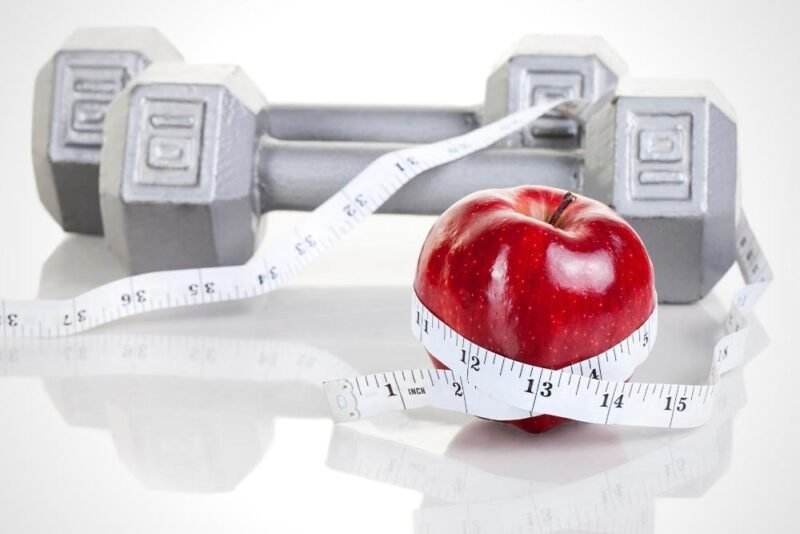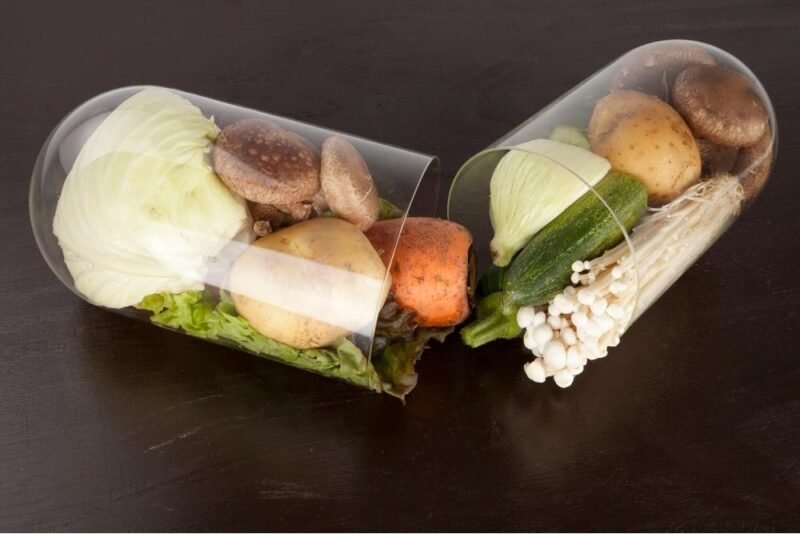
This post is part of my “Know Better, Do Better” series, in which I revisit an old blog post that makes me cringe because my thinking has evolved substantially since I wrote it. The text of the original post is in italics, with my somewhat snarky current notes in plain text.
Note: I wrote the original post in February 2011. I was seven months away from starting graduate school in the Nutritional Sciences program at the University of Washington. I would have been taking my first term of biochemistry and (I think) my final term of anatomy and physiology. Those, plus microbiology, were the last science pre-requisites I needed to be accepted to grad school. I don’t think I’d been officially accepted to grad school yet at this point.
What I am sure of was that I was pretty full of myself, and thought I had it all figured out. (Well, maybe not ALL, as I was planning to go through the education and training to become a registered dietitian.) What is frightening about this post is how the mentality it represents is very common among people with an interest in nutrition and health but no actual training…and even among some people who DO have actual training but have still subscribed to healthism* and wellness culture. The idea that the ability to prevent or treat disease is all within your power if you only adopt the “right” diet and lifestyle. Let’s get started!
* Healthism is the idea that your health is entirely your responsibility, and that you have a moral obligation to be healthy.

It all began with one man’s story
I was almost unreasonably excited by an article I read yesterday [on a major news organization website] about a man who, upon being diagnosed with type 2 diabetes at age 39, said “no thank you” to the offer of drugs and instead set out to reverse his diabetes with healthy eating and regular exercise.
And guess what? He succeeded!
[This man] cut out fatty foods and alcohol and watched his carbs. He eats more fiber and protein, and has lost [redacted] pounds. He says he really enjoys what he eats now. (I wish more people would realize that it’s totally possible for food to be both delicious and nutritious.)
Note: Ahhhh…so much to unpack here! First of all, this man’s story is anecdotal, which means it doesn’t apply to everyone, and may not apply to anyone. So often, stories like this are taken as “proof,” when really all it means is that it’s one person’s experience. It’s true for him, but anecdotes aren’t a substitute for actual scientific research.
Second, I would be curious to know if, 11 years later, he now has diabetes. The idea of “diabetes reversal” is super controversial, and from what it looks like, not an actual thing. He may not have had diabetes for very long, and may have been able to get his blood sugar and A1c levels back into a “normal” range, but this may have only delayed the inevitable (which isn’t anything to sneeze at). In the article, his doctor said that if he was not able to maintain his habits long term, his diabetes would come back.

If you get sick, it’s all your fault (no, not really)
This is an issue near and dear to my heart (and what I hope will be my academic future). Preventing chronic diseases like type 2 diabetes (and high blood pressure, high cholesterol, etc.) is so much better than treating them after they happen.
Note: OK, this is still somewhat true, a la the “ounce of prevention is worth a pound of cure” lines. Once something like diabetes or heart disease has been diagnosed, damage has already happened to the body, so if we can prevent disease through reasonable means, that would be better. However, taking steps to prevent chronic diseases doesn’t guarantee that we won’t ever develop one. We may just delay the onset, which, again, is nothing to sneeze at.
A healthy diet and regular exercise are vital components for preventing disease and protecting good health. As [this one guy] demonstrates, nutrition and fitness can sometimes even reverse disease.*
Note: Yeah, that’s a load of healthist bullsh*t. Can nutritious food and regular physical activity help you improve or protect health? Sure they can! But there are many, many other factors that influence our health, including:
- Genetics
- Your environment while your mother was pregnant with you and during your early childhood
- Freedom from stigma, bias, racism and other forms of oppression
- Access to quality healthcare (and health insurance)
- Living in a safe neighborhood with easy access to parks or other pleasant outdoor spaces
- Having enough education to help provide stable employment and adequate income
- Meaningful social connection
- A purpose in life (whether through your job, hobbies or volunteer work)

No, really, I’m doing this for my “health”
I have a family history of diabetes, so I am being proactive by eating right, exercising at least six days a week (I aim for seven) and keeping my weight down. I eat lots of vegetables and fruit, moderate amounts of quality protein, healthy fats and whole grains, and very little sugar or refined carbohydrates.
Note: Ohhhhhh…my goodness. My eating and exercise behaviors were so disordered! I’m not sure how I spent so much time studying for my science classes AND working full-time while essentially holding down a second full time job obsessing over what I would eat and whether I was exercising “enough” and “optimally.”
Reading this reminds me again how grateful I am that I must not be genetically predisposed to an eating disorder, because I really set myself up for one. (I talk about a lot of this in the interview I did on Christy Harrison’s “Food Psych” podcast a few years ago.) When I wrote I aimed to exercise seven days a week, I’m not kidding, and I would feel hella guilty if I skipped the seventh day.
I have an average of four alcoholic drinks per week (usually red wine), but I could give it up in an instant if I needed to (in fact, I did that last summer, for kicks).
Note: I have nothing against choosing not to drink alcohol (I do “dry January” some years). However, what I didn’t say in the original post was that the reason I gave up alcohol the previous summer is because I was in the midst of my most disordered eating and exercise phase. I was doing a “Biggest Loser” type challenge at work AND doing another “burn the fat” challenge online. I was exercising for hours a day (and hating some of it) and tracking every bite that went into my mouth. I viewed alcohol as “empty calories,” full stop.

Ah, the myth of personal responsibility rears its ugly head!
Right now, I’m reaping the rewards of looking good and feeling great. In the future, I hope I will reap the rewards of never being diagnosed with type 2 diabetes, hypertension, high cholesterol, or any other chronic health condition that is linked to lifestyle choices.
Note: I like the “looking good” comment. No matter how much I told myself that I was doing what I was doing “for my health,” let’s be honest, there was a fair amount of vanity involved. I was also struggling against the start of weight regain, even though I still had very rigid habits. I still hope that I will never be diagnosed with any of those things (because who WOULD want to be?) but I know that if I am, it’s not because I’ve failed somehow.
Like [this man], I would much rather commit to exercise, diet and weight control for the rest of my life than have to someday live as a diabetic. There are no guarantees, of course, but I like my odds.
Note: Another disordered eating alert! I might as well have said, “I would much rather commit to flirting with orthorexia* for the rest of my life…” At least I knew there were no guarantees! (Ohhhh…also, the “…have to someday live as a diabetic” bit? That is so ableist!)
*Orthorexia is an unhealthy obsession with eating healthfully.
Finally, some sage advice
* If you already have a health condition, such as diabetes, for which you are taking medication, and you want to see what nutrition and exercise can do for you, always talk to your doctor first, and never just go off your meds!
Note: Well, yes, this is true, especially because it’s dangerous to go cold turkey with some medications. If you are on medication for a health condition that research has established may be helped by nutrition and physical activity, and you want to give those things a go, you do need to talk to your doctor. They can monitor your blood pressure, blood sugar, cholesterol, or other biomarkers or symptoms (if applicable) and determine if you can start taking less medication, or maybe no medication.
Disclaimer: All information provided here is of a general nature and is furnished only for educational purposes. This information is not to be taken as medical or other health advice pertaining to an individual’s specific health or medical condition. You agree that the use of this information is at your own risk.
Hi, I’m Carrie Dennett, MPH, RDN, a weight-inclusive registered dietitian, nutrition therapist and body image counselor. I offer compassionate, individualized care for adults of all ages, shapes, sizes and genders who want to break free from eating disorders, disordered eating or chronic dieting. If you need to learn how to manage IBS symptoms with food, or improve your nutrition and lifestyle habits to help manage a current health concern or simply support your overall health and well-being, I help people with that, too.
Need 1-on-1 help for your nutrition, eating, or body image concerns? Schedule a free 20-minute Discovery Call to talk about how I can help you and explore if we’re a good fit! I’m in-network with Regence BCBS, FirstChoice Health and Providence Health Plan, and can bill Blue Cross and/or Blue Shield insurances in many states. If I don’t take your insurance, I can help you seek reimbursement on your own. To learn more, explore my insurance and services areas page.
 Print This Post
Print This Post






